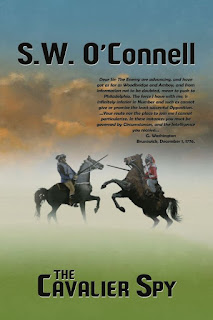Title: I
Should Have Stayed in Morocco
Genre:
Memoir
Author:
Stephen Caputi
Website: http://www.stevecaputi.com
Publisher:
Twilight Times Books
Read the First Chapter
Thank you for
your time in answering our questions about getting published. Let’s begin
by having you explain to us why you decided to become an author and pen this
book?
Author: I was stranded in the “Hole”, (slang for solitary
confinement) in a dingy federal prison in Jesup, Ga., with literally nothing to
do but ponder the past. I had nothing to read, nothing to do, nothing to look
forward to until the next bowl of gruel was tossed into the cell through a flap
in the door, and nothing to watch since the tiny three-inch window slit was old
and yellow and glazed. Total emptiness, which was driving me crazy. For a
career claustrophobe, being thrust into a seventy two square-foot space that
contained only a bed, toilet and sink constituted the worst case scenario. My
worst nightmare had materialized, and there was no getting away from it. No
relief. I knew why I was in prison, but I didn’t know why I was in the Hole.
I began
writing out of desperation. My
mind was still scrambled from the shock of being thrown in the Hole. As a last
resort I started to chronicle everything that happened… which wasn’t much. I
wrote down every item served at every meal, everything that the guards did and
said, and kept a diary of sorts that was chocked full of their shenanigans. I
figured that there was no way people knew how inmates were treated in prison…
and wondered if anybody cared.
The process of reflection
prompted me to search for answers... about my life, about the sequence of
events that led me to federal prison, and about the system that put me away. It
evolved into a full-fledged quest for the truth.
Is this your
first book?
Author: Yes. But not the last… The next book will be the second in the I
Should Have Stayed in Morocco trilogy. Club Fed Confidential: Inside the
Perpetual Prisoner Money Machine will be a more in-depth look at what
really goes on inside prisons. The final (untitled) book contains a
professional analysis of the real cost of the criminal justice and prison
systems, and a critical look into the skullduggery of the prison industrial
complex.
With this
particular book, how did you publish – traditional, small press, Indie, etc. –
and why did you choose this method?
Author: I took
the advice of another author and close friend who has been through this process
several times over the past five years. Given my limited budget and the
timeline of wanting to get this story out in print as quickly as possible, I
opted to pursue smaller to mid-tier publishers who could provide me with the
editing and marketing support necessary to launch this first book.
Can you tell
us a little about your publishing journey?
The pros and cons?
Author: The
journey is actually just beginning. As a businessman, I was disappointed in
some of the proposal I’d received from other publishers, but I’m still learning
this industry. My current publisher, Twilight Times Books (Lida Quillen) has
been tremendous. She has assembled a team of editors, cover designers and
publicists to assist ‘little ol’ me’ to make this dream come true!
What lessons
do you feel you learned about your particular publishing journey and about the
publishing industry as a whole?
Author: First,
speak with other published authors about their first-hand experiences. Secondly,
I’ve learned that this process requires a great deal of patience. Some days I
feel as though I’m waking up in the movie, Groundhog
Day! As my journey is just beginning, I worry most about how best to
promote this book. I know I have much to learn here yet, but so far, it’s been
a great journey.
Would you
recommend this method of publishing to other authors?
Author: I
don’t know the final outcome of this yet, and so far… it’s my only experience. Yes, I would recommend
it, but others need to do their homework as well.
What’s the
best advice you can give to aspiring authors?
Author: The process of searching for the right words
and the best ways to express your feelings can be tedious, but the reward is
the finished product. Don’t worry about writing everything sequentially, that
can be accomplished at the end with the help of some good editing. Write the
scenes that you’re most passionate about first… then piece it all together!












